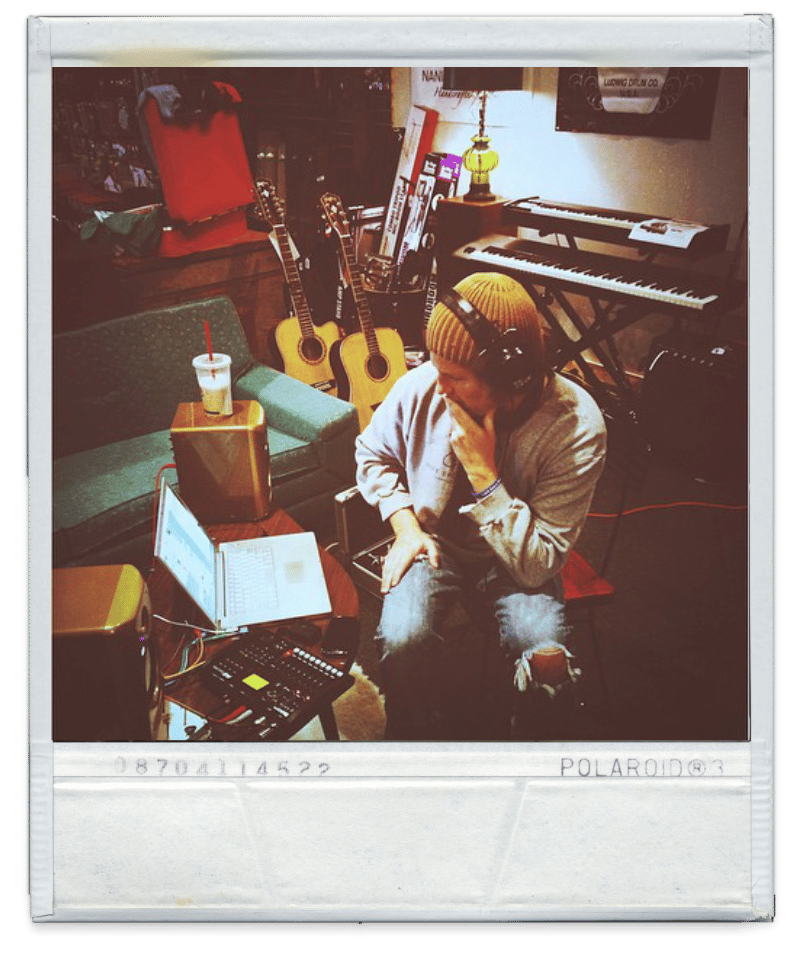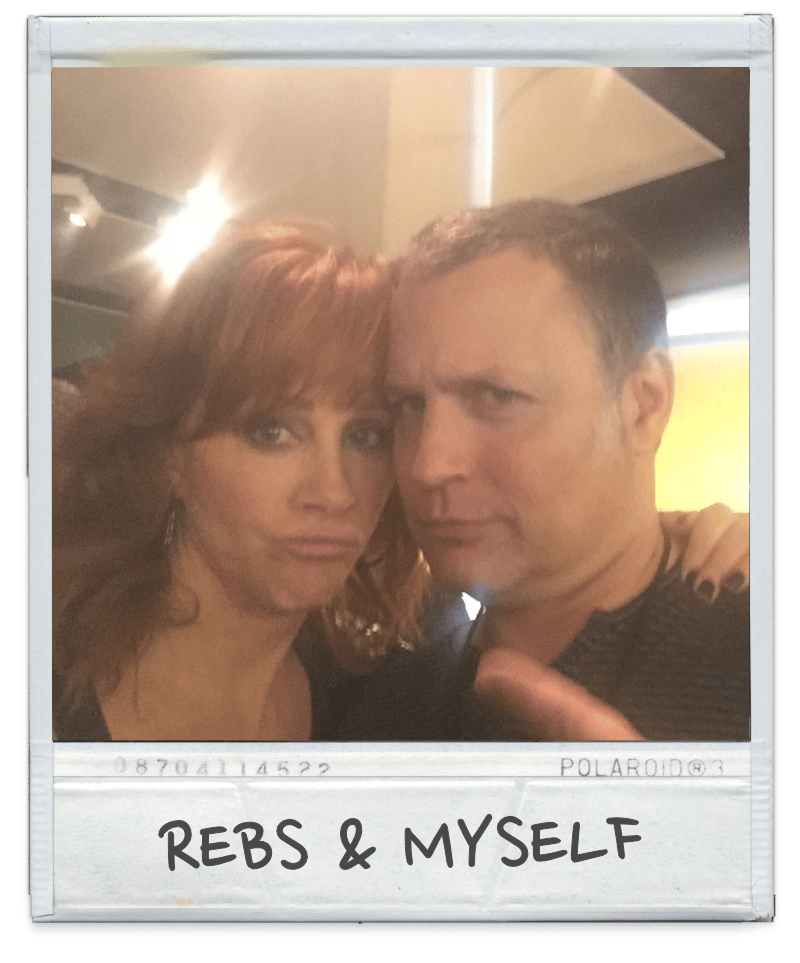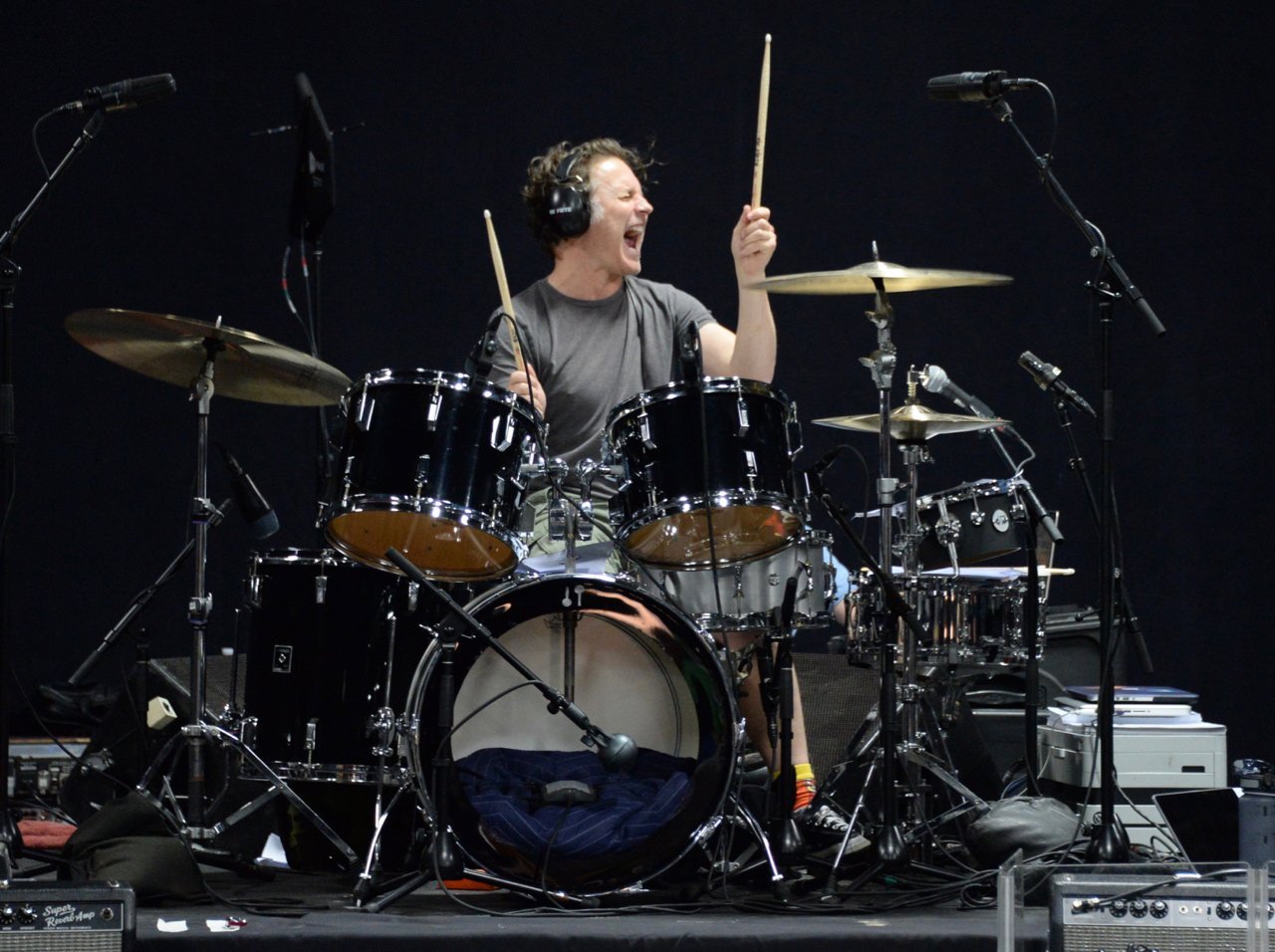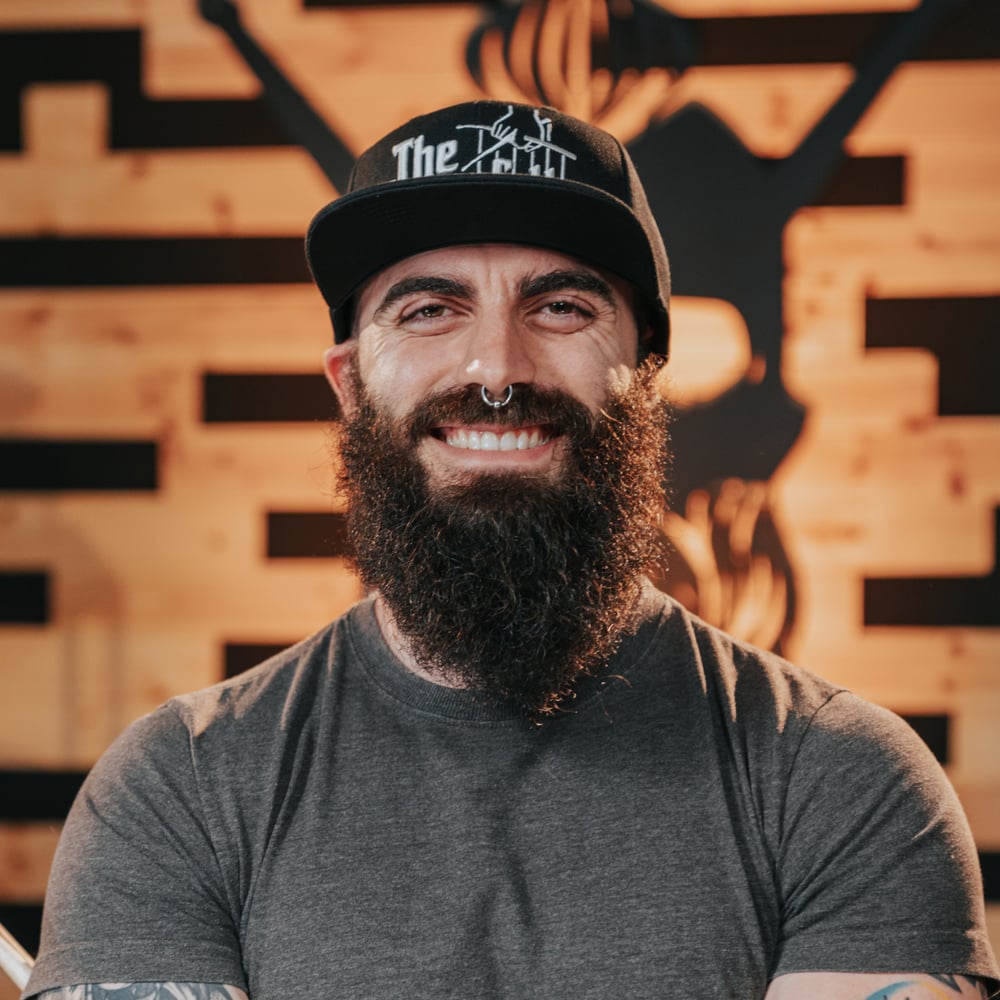
Imagine Alzheimer’s, Parkinson’s, and ALS shaken in a blender. When you wake up, you don’t know what symptoms you’ll have. The shaking of Parkinson’s, the memory loss of Alzheimer’s, the muscle weakness of ALS…it can change daily.
Huntington’s Disease is caused by a bad protein gene that repeats a number of times. While the outcome is different for everybody, this disease will typically kill you within 10-15 years of diagnosis.
Here’s my story.
In 1994, I auditioned for Faith Hill, a new artist at the time. She took off very quickly. ‘90s country music was wild and the trajectory of her career was huge. Because of that, I got a lot of exposure, which in the business helps out a lot for your next gig and what have you.
After a few years, Faith took some time off to have another baby. In 2001, I started playing with Jewel, and had a mostly international schedule that took us to places like Europe and Japan.
Touring with a pop or rock act looks very different than touring with a country act. When I toured with Faith, we might leave town on Thursday, get home Monday, and repeat. Simple, weekend warrior stuff. But with Jewel, I noticed the time changes more and I started getting forgetful about little things. I would wake up and try to put my shirt on. I wasn’t feeling good. I was in my 30s and had done a lot of touring, so I thought I was just exhausted.

I’ve never done any drugs aside from pot – never tried cocaine or heroin or anything like that – and I like red wine, but I thought that it was starting to catch up to me for some reason.
After touring in Germany in 2002, my mom called me. She said she and her brother, my uncle Pat, had been diagnosed with this thing called Huntington’s Disease. It wasn’t really well known, so she was trying to explain it to me.
And then she goes, “I think you need to get checked.”
I immediately did as much research as I could. There wasn’t much out there about it. You know when you’re getting a cold or flu? You just know when your body’s not right.
I knew that what I was dealing with was the beginning of something that was going to change my life.
I booked an appointment a few months later. My mom’s neurologist told me to get checked anonymously, because when you play drums for a living, you never know how your record could impact your insurance coverage. I went for some tests, and they called me in a couple of weeks later.
The neurologist confirmed I had Huntington’s disease.
He said he knew because of the way I would blink my eyes. They’re looking for these things: your gait, the slurring, sounding like you’re tired or drunk when you’re not.
When I received my diagnosis, a psychiatrist was in the room. As morbid as it sounds, they’re there because they don’t want you to go kill yourself. People can become psychotic with a diagnosis like this.
People can become psychotic with a diagnosis like this.
If I look back to when I was growing up, my grandmother was always anxious and had rigidity in her movements. Mom had epilepsy growing up, so she never drove a car. She was always anxious, and so was her younger brother. They were just like their mom. Uncle Pat was in the Air Force and was having some problems. He saw a doctor who said, “I think you have Huntington’s Disease.” They took his gun away from him immediately.
He was diagnosed in 2002 and died in 2007. Mom was diagnosed in 2002 and made it to 2014.
I’m very much a people person – I think I got that from my dad – and I’ve never met a stranger. This came out more after my diagnosis. I became more lovey towards people. I would hug everybody, and I wasn’t taking things for granted anymore.
I used to be an ass sometimes. Oh my gosh…we need to get on a plane at 10? And I’d bitch and complain and I’d have to catch myself. Now, there was never a bad day. What have I got, five years? I was going to drink every bottle of wine I could.
At the time of my diagnosis, I think it affected my wife more than me. We had a new son. I thought, well, I’m in my mid-thirties, it’s just something that happens sometimes. I got kinda wild in the sense that I felt like nothing could stop me.
I started partying more and staying up later. I became a little reckless. I was run down but happy. I lost my inhibitions. I didn’t want to stop the party. But I had to, because the party was killing me. I had to collect myself and continue on the journey.
I didn’t want to stop the party. But I had to, because the party was killing me.
This behavior wrecked a lot of things in my life. I experienced horrible effects of trying different medications. I lost my wife.
Looking back, I think that I was doing it to make everything go faster. It’s like when you’re preparing for divorce, or when you think someone is going to leave you, you do things to wreck the relationship. You think it’s going to happen no matter what, so you just kibosh it.
They prescribed me an antidepressant that kicked my ass for quite a few months. Eventually, we found a cocktail that worked better. I also started taking 18 vitamins a day, trying to stave off whatever was going to happen. I was drinking like a fish and being stupid. Around that time, a bass player buddy of mine who was playing with Jewel died of a brain aneurysm. The next tour was canceled and that’s when Brooks & Dunn called me.
Fast forward to 2007. I hadn’t told my bosses about my diagnosis; only my close friends and family knew. I had gotten remarried and started putting out my feelers in the search for a Huntington’s community. In Melbourne Australia, I met a lady who ran what was essentially a Ronald McDonald House for Huntington’s patients. It was all about having dignity in the way that they were dying, and that really meant a lot to me. I think in America, we throw so many pills at things when we should be improving people’s quality of life.
I thought, God’s given me this platform where I get to play all over the world, sometimes to 50,000 people a night. Why not use this to raise awareness? I got a hold of the Huntington’s Disease Society of America and started doing talks and golf tournaments and raising funds.
But I started having some emotional and cognitive issues, so they switched up my cocktail again. Now I was forgetting songs where I’d never forgotten songs before. It would be more or less forgetting where we were. Are we in a chorus? What verse are we in? Are we in an outro already? I found myself having to make big notes, big copies of charts and books.
I finally went to my bosses. I told Kix and Ronnie, “Hey, I’ve got this thing, and I’m going to play as long as I can. If I can leave pamphlets out on the merch tables, that’d be great.”
It turns out some of the guys in the band had already talked to them.
“We know. We’ve just been waiting for you to come to us. We love you and we support you. We aren’t going to let you play if you can’t play.”
I’ve been very fortunate to have amazing bosses. I played with Brooks & Dunn from 2003 to 2010, and when they took a break I kept playing with Ronnie Dunn for three years. And I continued to have memory problems and muscle problems.
When my mom was nearing the end in 2013, I took a break and came home to Indiana. Five months after my mom passed, my dad died. It was heavy and made me more depressed. With the help of my psychiatrist, I quit my antidepressants and tried to do everything naturally. I got off the extra supplements and it’s been steady in a good way ever since.

In 2015, Kix and Ronnie got called to do a residency in Vegas with Reba McEntire, and they asked if I wanted to sign on. The catch was that I’d have to do Reba’s solo shows as well. I said yes, went into six weeks of rehearsals, and it almost killed me. When I get stressed, my body shuts down; I get stiff and I can’t move. I go into a shell. My muscles, especially my right side, are not good to me.
I did the first run of Reba’s Vegas dates and then quit the gig. I played the remaining shows with Brooks & Dunn and moved back home to Indiana. I was trying to figure out what I was going to do with the next part of my life because it felt like the disease was progressing. I played with a guy locally and tried to process the death of my parents. I went through another divorce and tried to focus on my mental and physical health.
18 months after I quit, I got a call from Reba’s team to come back. They had gone through a couple of drummers, and I was in a better place, so I went back to play with both Reba and Brooks & Dunn.

These days, I’ll play two shows a week with each act, and they’ll fly me in and out of Indiana. It’s great.
I’ve said this a lot: it’s been a blessing, not a curse. The disease doesn’t define me. The people I’ve met because of it have enhanced my life so much. You’re incredibly blessed if you have your parents in the picture, but I have this amazing support group that I truly, dearly love.
If even one person I’ve met can wake up and fight another day, that means everything to me. I think that’s why God put me here. I really have become much stronger, and so has my faith over the last five years. I read a few pages of my bible every day. I don’t stress out about anything anymore. I don’t think about what’s going to happen tomorrow. I’m grateful for the moment, grateful that my phone rings, grateful that I’m around for my littlest son because I wasn’t around for my other kids. I feel like I’m the most ‘adult’ I’ve ever been. I turned 50 years old and hopefully I still have a third of my life left, if I’m lucky.
Do not stop living your life. Whether you have a disease like Huntington’s, or anxiety or depression, a great day might simply mean waking up and getting out of bed. You know how huge that is? Go and get your mail. Take ten minutes a day, five minutes a day, one minute a day to do something and it’ll change your life.
I’m ready. If I don’t wake up tomorrow, that’s okay with me. I know that on the other side, everybody will see each other. I get up every day. I’m thankful and grateful every day. I hug as many people as I can every day. I look at every stranger in the face and ask their name every day.
It’s important to show people love. That’s my plan. To continue showing people love. I think it comes back to me because of that.
–
If you’d like to support the Trey Gray Huntington’s Disease Foundation, go to www.thetreygrayfoundation.org.




By signing up you’ll also receive our ongoing free lessons and special offers. Don’t worry, we value your privacy and you can unsubscribe at any time.
We use cookies for traffic data and advertising. Cookie Policy »